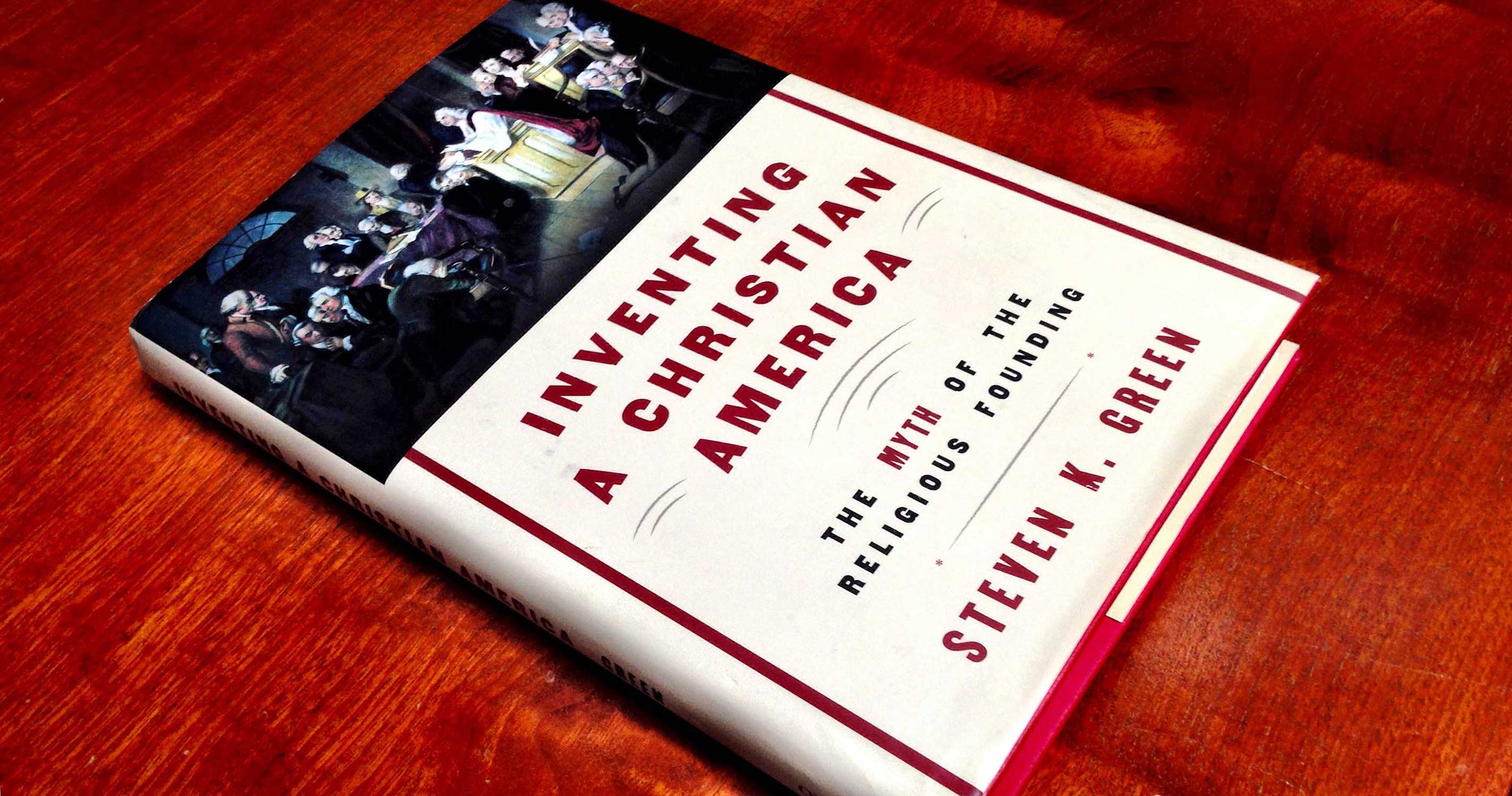Steven Green’s scholarly home is at the intersection of church and state. It can be a tough neighborhood, where law, history, politics, culture and values clash in a turf war that’s spanned centuries. At stake are our most cherished beliefs and fundamental freedoms: Who controls your body? Who can you marry? What does it mean to be American?
Green hasn’t shied away from the intellectual fracas during his storied career, which includes serving as a judge in Alaska, legal director of Americans United for the Separation of Church and State, law professor, historian and author. He’s a First Amendment heavyweight whose arguments pack a punch in the courtroom, among public officials and in the media. Green’s latest book, “Inventing a Christian America: The Myth of the Religious Founding,” takes aim at America’s religious origin story.
Odds are that you’re familiar with some version of the following: The pilgrims fled persecution in Europe and, by the grace of God, established in America a bastion of religious liberty, inspired by Judeo-Christian principles and Mosaic law.
But the founding myth unravels as Green methodically pulls each historical thread, beginning with the idea of our origins as a haven for religious tolerance. He squashes the notion of a culture that initially embraced religious freedom or any modern conception of religious tolerance. Where tolerance existed, it was limited to those seeking to discover God’s truth – as defined by those who already had found it.
This notion of discovery was the germ of religious toleration and, ultimately, religious freedom, but dissent was not welcome among colonies’ religious leaders. John Cotton, a prominent Puritan minister who played a part in drafting early colonial law, compared dissent to disease, calling it “more infectious, and contagious, th[a]n any plague-sore.”
In Massachusetts Bay Colony, “Baptists were expelled, Quakers were whipped and hung, and witches were burned,” writes Green.
“Like all myths, claims that people settled North America in search of religious liberty and that Christian ideals informed the nation’s founding are based on historical ‘facts.’” But historical facts can be misleading, particularly when they are taken out of their historical context, Green notes.
Green shows how the founding myth was established and developed – primarily during the early 19th century – by people who sought to sanctify our collective origin.
By mining quotes from the founding period’s mother lode of sacred language, modern proponents of the Christian founding myth sidestep the Constitution’s singular silence on claims to divine provenance. Green argues against taking such decontextualized statements at face value, because biblical language and metaphor were politicians’ rhetorical currency – the pop culture references of their day.
“This is curious,” he says, “considering the overwhelming public skepticism in today’s discourse. Eighteenth century politicians were acutely aware of language’s power to communicate ideas and inspire.”
Early iterations of the founding myth were intended to unite the people of a new nation, but contemporary, evangelical claims to America’s founding tend to be more pessimistic and sectarian. They stake a claim to a contrived history, allowing today’s political leaders to portray themselves as warriors in a righteous battle for America’s soul.
That politicians rely on popular rhetoric isn’t a novel argument against the religious founding myth, but Green’s approach is to demonstrate with copious evidence how misleading it is to “proof-text” – or cherry pick – from public statements of the time. His historical analysis delves into the speeches and writings of the founding period to track the development of the Christian founding narrative.
“Inventing a Christian America” reveals an origin story organically shaped by disparate groups of second-generation Americans who sought to establish a collective identity – one that reinforced their ideals and aspirations for a new nation.



